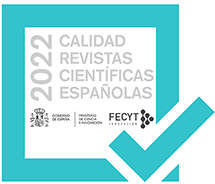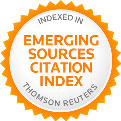Effect of oral creatine supplementation in soccer players metabolism. (Efecto de la ingesta de un suplemento de creatina en el metabolismo de jugadores de fútbolen el metabolismo de jugadores de fútbol).
Resumen
The aim of the present study was to assess whether creatine can alter the metabolism of nitrogen compounds and performance in professional soccer players. The subjects were randomly divided into 2 groups: experimental (E; n = 17) and control (C; n = 14). Their initial evaluations included blood tests and nutritional intake. They then received a supplement consisting of 20 individual doses of creatine to be taken orally for 5 days, totaling 0.6 g.Kg-1 body weight per day (group E = 50% creatine + 50% dextrose; group C = 100% dextrose). On day 5, blood was collected from the resting subjects (PRE), and then 10 min (POST10) and 20 min (POST20) after they underwent an ergometric test. Nitrogen compounds and hematocrit were measured in each blood sample. There were no differences among the groups in the results of the physical examination, nutritional state, blood samples or performance. Serum ammonia levels measured after exercise were equal to those at rest. Serum urea increased in POST10 and POST20. In Group E, uremia was lower than in Group C in PRE, POST10 and POST20, indicating retention of protein and nucleotides.
Key words/palabras clave: ammonia | urea | creatine | soccer | amoniaco | uremia | creatina | futbol
ResumenEste estudio tiene como objetivo determinar si la creatina puede alterar el metabolismo de los compuestos del nitrógeno y el rendimiento deportivo en jugadores profesionales del fútbol. Los individuos fueron divididos aleatoriamente en 2 grupos: experimental (E; n = 17) y control (C; n = 14). Sus evaluaciones iniciales incluyeron análisis de sangre y control de las ingestas alimenticias Entonces recibieron un suplemento que consistía en 20 dosis individuales de creatina que se tomará oral por 5 días, sumando 0.6 g.Kg-1.peso corpóreo por el día (grupo E = 50% creatina + 50% dextrosa; grupo C = 100% dextrosa). El día 5, la sangre fue recogida a partir de los individuos (PRE), y entonces de 10 minutos (POST10) y de 20 minutos (POST20) después de que experimentaran un test de esfuerzo máximo (GXT). Los compuestos del nitrógeno y el hematocrito fueron medidos en cada muestra de la sangre. No había diferencias entre los grupos en los resultados de la prueba física, del estado alimenticio, de las muestras de la sangre o del rendimiento deportivo. Los niveles del amoníaco del suero midieron después de que el ejercicio fuera igual en descanso. La urea del suero aumentó de POST10 y de POST20. En el grupo E, la uremia era más baja que en el grupo C adentro PRE, POST10 y POST20, indicando la retención de la proteína y de los nucleótidos.
doi:10.5232/ricyde2008.01004
---------------------------------------------------------------------
References/referencias
Bellinger, B. M., Bold, A., Wilson, G. R., Noakes, T. D., y Myburgh, K. H. (2000) Oral creatine supplementation decreases markers of adenine nucleotide degradation during a 1-h cycle test. Acta Physiologica Scandinavica, 170, 217-224.
doi:10.1111/j.1365-201X.2000.00777.x
PMid:11167307
Biwer, C. J., Jensen, R. L., Schmidt, W. D., y Watts, P. B. (2003) The effect of creatine on treadmill running with high-intensity intervals. Journal of Strength and Conditioning Research, 17, 439-445.
PMid:12930167
Butterworth, R. F. (2002) Pathophysiology of Hepatic Encephalopathy: A New Look at Ammonia. Metabolism Brain Disease, 17, 221-227.
doi:10.1023/A:1021989230535
PMid:12602499
Cox, G., Mujika, I., Tumilty, D., y Burke, L. (2002) Acute creatine supplementation and performance during a field test simulating match play in elite female soccer players. International Journal of Sport Nutrition and Exercise Metabolism, 12, 33-46.
PMid:11993621
Deldicque, L., Louis, M., Theisen, D., Nielens, H., Dehoux, M., Thissen, J-P., Rennie, M. J., y Francaux, M. (2005) Increased IGF mRNA in Human Skeletal Muscle after Creatine Supplementation. Medicine and Science in Sports Exercise, 37, 731-736.
doi:10.1249/01.MSS.0000162690.39830.27
Gaebelein, C. J., y Senay Jr, L. C. (1980) Influence exercise type, hydration, and heat on plasma volume shifts in men. Journal of Applied Physiology, 49, 119-123.
PMid:7399984
Hartmann, U., y Mester, J. (2000) Training and overtraining markers in selected sport events. Medicine and Science in Sports Exercise, 32, 209-215.
doi:10.1097/00005768-200001000-00031
Hellsten, Y., Richter, E. A., Kiens, B., y Bangsbo, J. (1999) AMP deamination and purine exchange in human skeletal muscle during and after intense exercise. Journal of Physiology, 520, 909-920.
doi:10.1111/j.1469-7793.1999.00909.x
PMid:10545153 PMCid:2269626
Kang, J., Chaloupka, E. C., Mastrangelo, M. A., Biren, G. B., y Robertson, R. J. (2001) Physiological comparisons among three maximal treadmill exercise protocols in trained and untrained individuals. European Journal of Applied Physiology, 84, 291-295.
doi:10.1007/s004210000366
PMid:11374112
Kreider, R. B. (2003) Effects of creatine supplementation on performance and training adaptations. Molecular and Cellular Biochemistry, 244, 89-94.
doi:10.1023/A:1022465203458
PMid:12701815
Merrick, M. J., y Edwards, R. A. (1995) Nitrogen Control in Bacteria. Microbiological Reviews, 59, 604-622.
PMid:8531888 PMCid:239390
Mourtzakis, M, y Graham, T. E. (2002) Glutamate ingestion and its effects at rest and during exercise in humans. Journal of Applied Physiology, 93, 1251-1259.
PMid:12235022
Mujika, I., Padilla, S., Ibanez, J., Izquierdo, M., y Gorostiaga, E. (2000) Creatine supplementation and sprint performance in soccer players. Medicine and Science in Sports Exercise, 32, 518-525.
doi:10.1097/00005768-200002000-00039
Nybo, L., Dalsgaard, M. K., Steensberg, A., Møller, K., y Secher, N. H. (2005) Cerebral ammonia uptake and accumulation during prolonged exercise in humans. Journal of Physiology, 563, 285-290.
doi:10.1113/jphysiol.2004.075838
PMid:15611036 PMCid:1665558
Nybo, L., y Secher, N. H. (2004) Cerebral perturbations provoked by prolonged exercise. Prog Neurobiology, 72, 223-261.
doi:10.1016/j.pneurobio.2004.03.005
PMid:15142684
Ogino, K., Kinugawa, T., Osaki, S., Kato, M., Endoh, A., Furuse, Y., Uchida, K., Shimoyama, M., Igawa, O., Hisatome, I., y Shigemasa, C. (2000) Ammonia response to constant exercise: differences to the lactate response. Clinical and Experimental Pharmacology and Physiology, 27, 612-617.
doi:10.1046/j.1440-1681.2000.03312.x
PMid:10901391
Ostojic, S. M. (2004) Creatine supplementation in young soccer players. International Journal of Sport Nutrition and Exercise Metabolism, 14, 95-103.
PMid:15129933
Petibois, C., Cazorla, G., y Deleris, G. (2003) The biological and metabolic adaptations to 12 months training in elite rowers. International Journal of Sports Medicine, 24, 36-42.
doi:10.1055/s-2003-37194
PMid:12582950
Rennie, M. J., y Tipton, K. D. (2000) Protein and amino acid metabolism during and after exercise and the effects of nutrition. Annual Reviews Nutrition, 20, 457-483.
doi:10.1146/annurev.nutr.20.1.457
PMid:10940342
Snow, R. J., Mckenna, M. J., Selig, S. E., Kemp, J., Stathis, C. G., y Zhao, S. (1998) Effect of creatine supplementation on sprint exercise performance and muscle metabolism. Journal of Applied Physiology, 84, 1667-1673.
PMid:9572815
Terjung, R. L., Clarkson, P., Eichner, E. R., Greenhaff, P. L., Hespel, P. J., Israel, R. G., Kraemer, W. J., Meyer, R. A., Spriet, L. L., Tarnopolsky, M. A., Wagenmakers, A. J. M., Williams, M. H. (2000) The American College of Sports Medicine Roundtable on the physiological and health effect of oral creatine supplementation. Medicine and Science in Sports Exercise, 32, 706-717.
PMid:10731017
Van Loon, L. J. C., Jeukendrup, A. E., Saris, W. H. M., y Wagenmakers, A. J. M. (1999) Effect of training status on fuel selection during submaximal exercise with glucose ingestion. Journal of Applied Physiology, 87, 1413-1420.
PMid:10517772
Volek, J. S., y Rawson, E. S. (2004) Scientific basis and practical aspects of creatine supplementation for athletes. Nutrition, 20, 609-614.
doi:10.1016/j.nut.2004.04.014
PMid:15212742
Warburton, D. E. R., Welsh, R. C., Haykowsky, M. J., Taylor, D. A., y Humen, D. P. (2002) Biochemical changes as a result of prolonged strenuous exercise. British Journal of Sports Medicine, 36, 301-303.
doi:10.1136/bjsm.36.4.301
PMid:12145122 PMCid:1724523
Wyss, M., y Kaddurah-Daouk, R. (2000) Creatine and creatinine metabolism. Physiological Review, 80, 1107-1213.
PMid:10893433
Zhao, S., Snow, R. J., Stathis, C. G., Febbraio, M. A., y Carey, M. F. (2000) Muscle adenine nucleotide metabolism during and in recovery from maximal exercise in humans. Journal of Applied Physiology, 88, 1513-1519.
PMid:10797106
---------------------------------------------------------------------
Palabras clave/key words
Texto completo/Full Text:
PDF------------------------ 0 -------------------------
RICYDE. Revista Internacional de Ciencias del Deporte
![]()

Publisher: Ramón Cantó Alcaraz
ISSN:1885-3137 - Periodicidad Trimestral / Quarterly

